HABITAT RESTORATION AT BURGER HILL
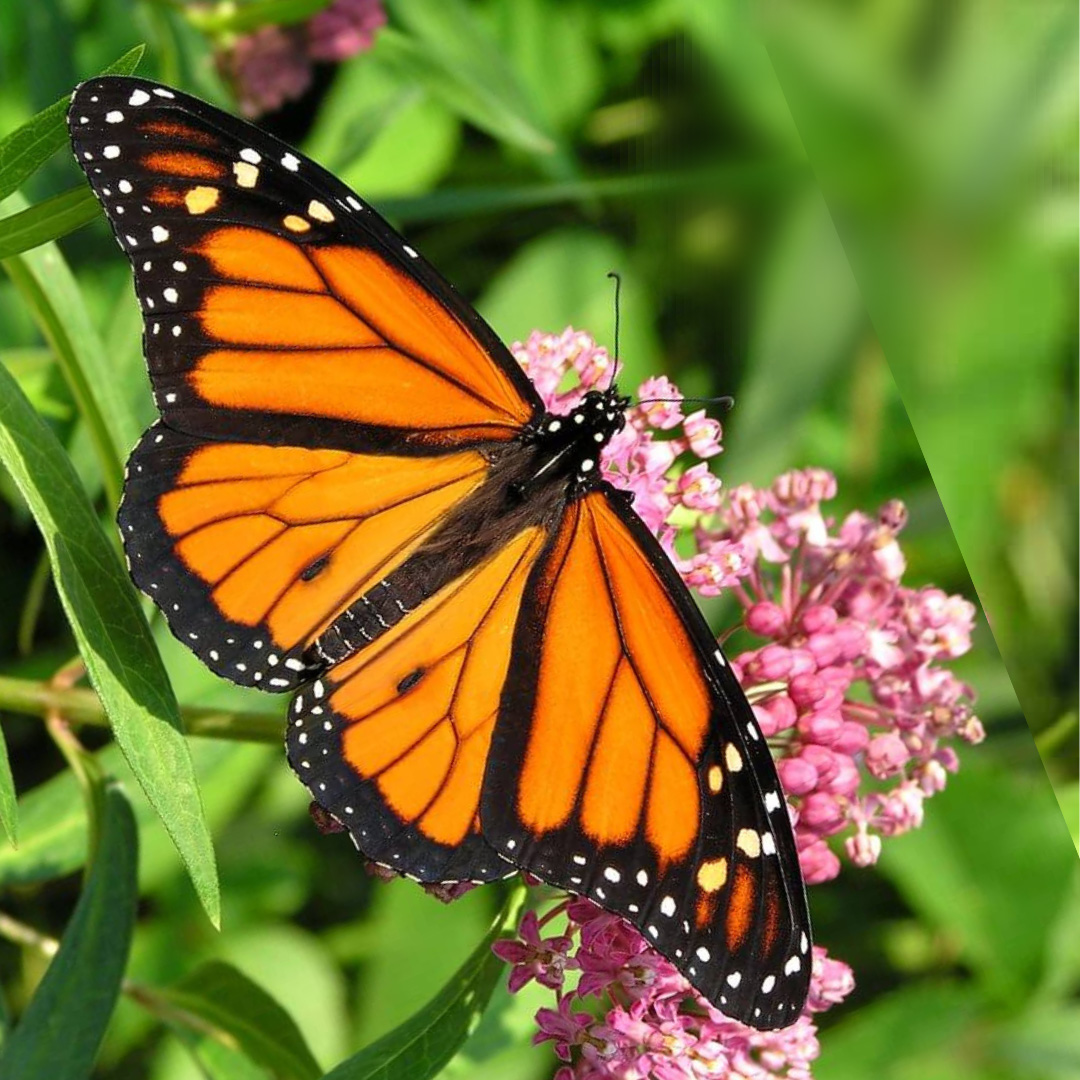
Endangered Monarch butterflies enjoy bountiful milkweed and native pollinator plants at Burger Hill’s dedicated habitat.
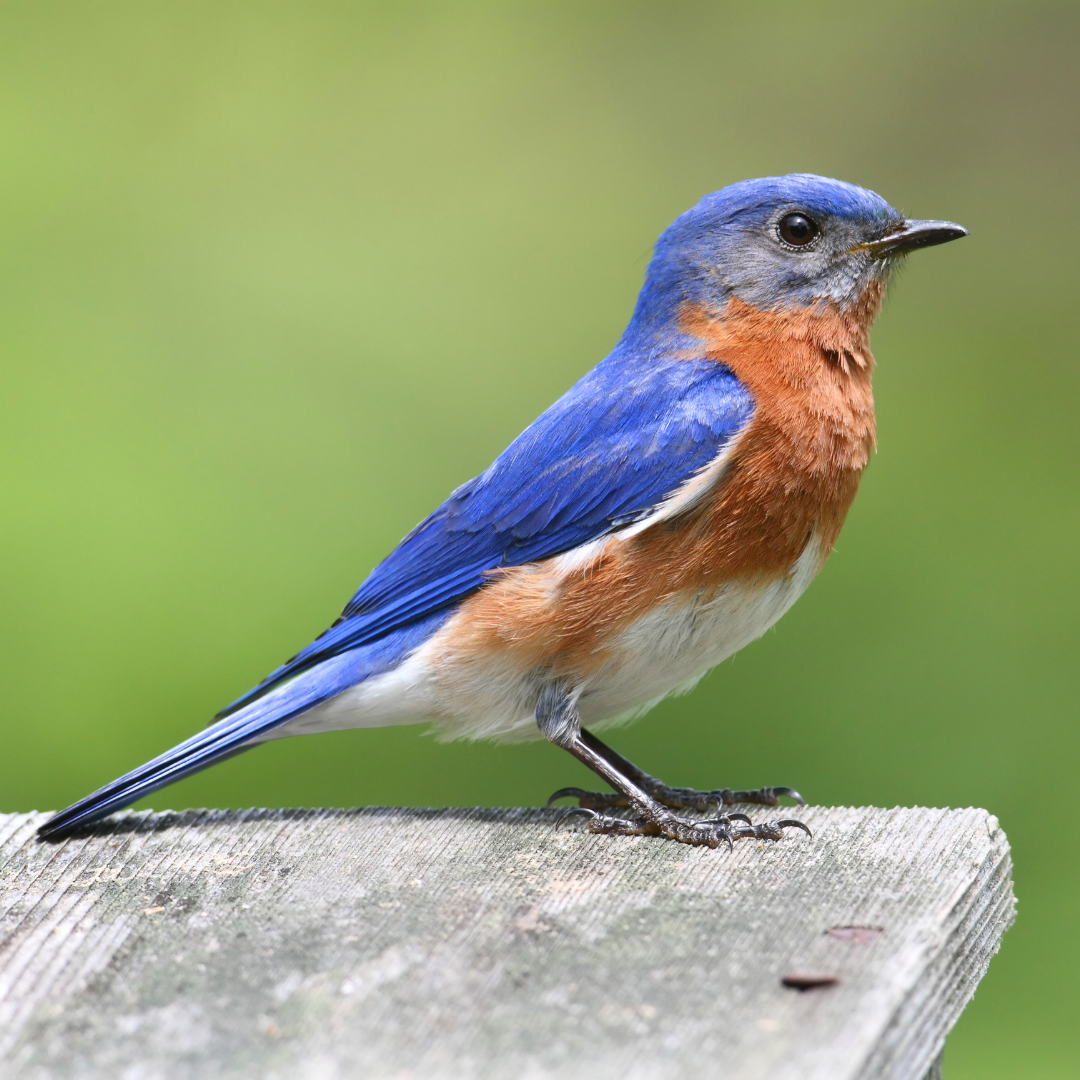
Eastern Bluebirds boxes at Burger Hill monitored by the Waterman Bird Club are helping NYS’s bird make a comeback.
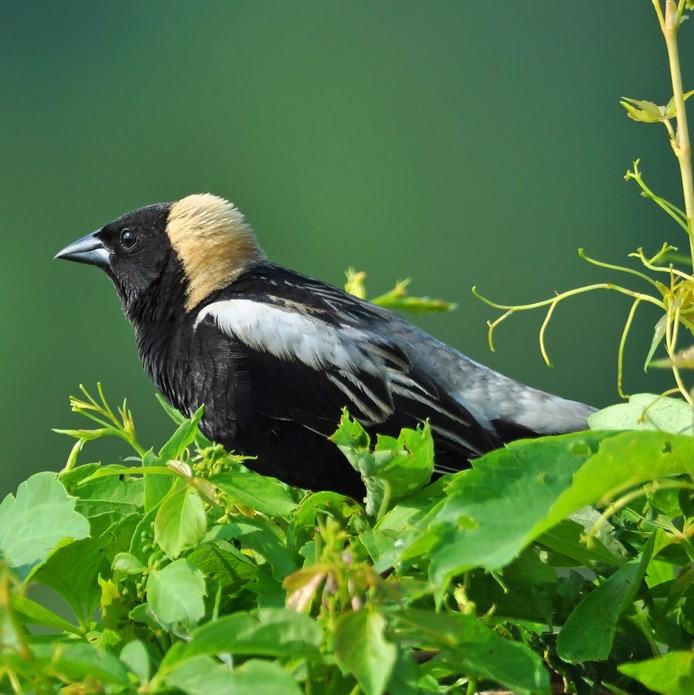
Bobolinks sightings are rare in NYS, but many of these birds call Burger Hill home during the summer months.
Grassland habitat sees return of uncommon birds and pollinators
Over 67 acres of the 76 acres, 88%, that make up Drayton Grant Park is maintained as grassland, which is essential breeding and foraging habitat for grassland nesting birds. Habitat loss and degradation of these habitats has resulted in 80-99% decline of these species since 1966. Among the grassland birds that currently call Burger Hill their summer home are Bobolinks. Also listen for the accelerated whistle calls of field sparrows as you walk the trails.
Winnakee Land Trust, and its dedicated volunteers of the Burger Hill Sub-Committee, strive to optimize this essential habitat while maintaining the aesthetics of historical pastureland. Best management practices for optimal grassland bird habitat include late mowing and minimal disturbance to the fields during the breeding season.
Listen to the bubbling song of the Boblinks
Bobolinks sightings are rare in NYS, but many of these birds call Burger Hill home during the summer months. Burger Hill is fortunate to be one of the few places with a large Bobolink population in the area, found nesting each year in the park’s meadows. Bobolinks arrive in April and May from their winter homes in South America to raise their young in the Northeast United States.
Bobolink populations have reduced drastically across North America in recent decades due to a decrease in large open unmown grasslands where they settle to breed. The meadows at Burger Hill Park are an ideal nesting spot for Bobolinks who build their nests on the ground, making their nestlings especially susceptible to disturbance and predators—a habit which further jeopardizes their survival. In accordance with easement regulations, Winnakee waits to mow the open meadows at Burger Hill until late July to give the Bobolink nestlings the best chance to fledge and survive.
Look in the spring for the brightly colored Bobolink males that often perch on the grasses and listen for the male’s bubbly, chattering, ascending warble as they fly across the fields.
As a visitor to Burger Hill, you can do your part by staying on the mown trails and leashing your pets to protect nests and young Bobolinks, and help ensure a brighter future for these unique birds!
EASTERN BLUEBIRD MONITORING
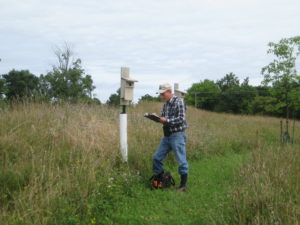
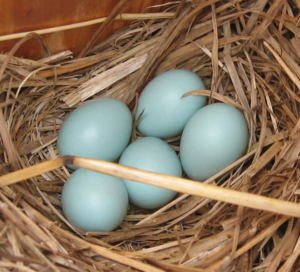
Dedicated volunteer Frank Margiotta of the Ralph T. Waterman Bird Club has been monitoring Eastern Bluebird boxes at Burger Hill for over a decade. Each spring, he tracks eggs and hatchlings.
POLLINATOR WAYSTATION:
Burger Hill provides important habitat for migrating Monarch butterflies
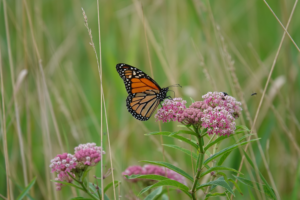
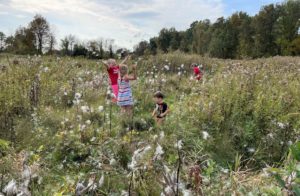
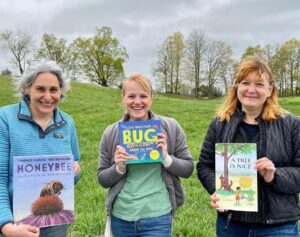
Flourishing milkweed at Burger Hill provides nectar and shelter for a variety of pollinators, including Monarch butterflies, Eastern Tiger Swallowtail butterflies, bees and many other pollinator species. In the fall, Winnakee partners with the Pollinator Patrol, the Morton Library and the Staatsburg Library to host a milkweed pod release day to encourage further growth of this essential food to Monarchs.
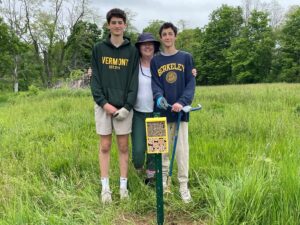
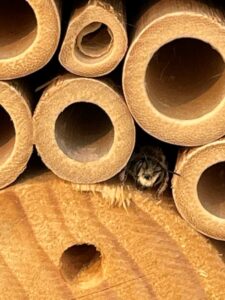
In Spring 2023, these groups, along with the Rhinebeck Middle School Pollinator Project, installed native bee houses at the northern-most edge of the Park by the Drayton Grant Memorial garden. Already, leafcutters and mason bees are moving into their new residences and helping this meadow flourish.
Did you know that over three-fourths of our region’s most critical wildlife habitats occur in forests on private lands?
If you are interested in working with Winnakee to create sustainable forestry practices as part of a lasting legacy that protects your irreplaceable land forever, please call us today at (845) 217-0939.
